Normal Math Worksheets Activities With Answers for Ages 4-7
6 filtered results
-
From - To
Welcome to our "Normal Math Worksheets Activities With Answers for Ages 4-7" page! Designed specifically for young learners, these engaging worksheets help children develop essential math skills in a fun and interactive way. Featuring a variety of activities, our resources cover key concepts such as counting, addition, subtraction, and pattern recognition. Each worksheet is tailored for children aged 4 to 7, making them perfect for preschool and early elementary students. With easy-to-follow answer keys, educators and parents can effectively assess progress and understanding. Start your child's math journey today and watch them gain confidence and enthusiasm in their learning!
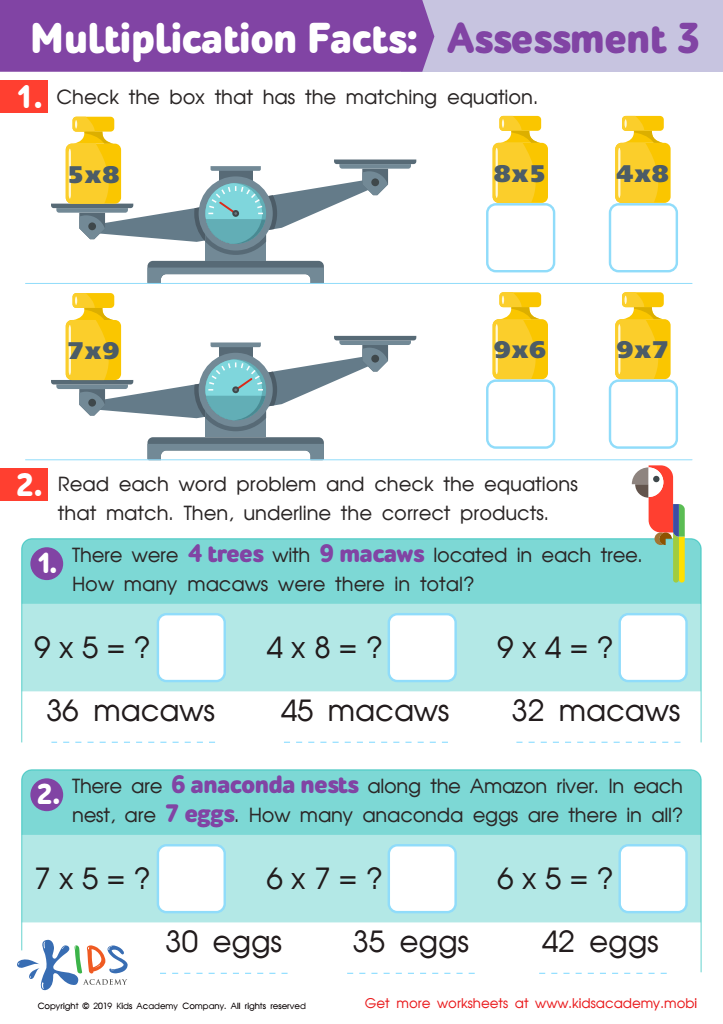

Multiplication Facts: Assessment 3 Worksheet
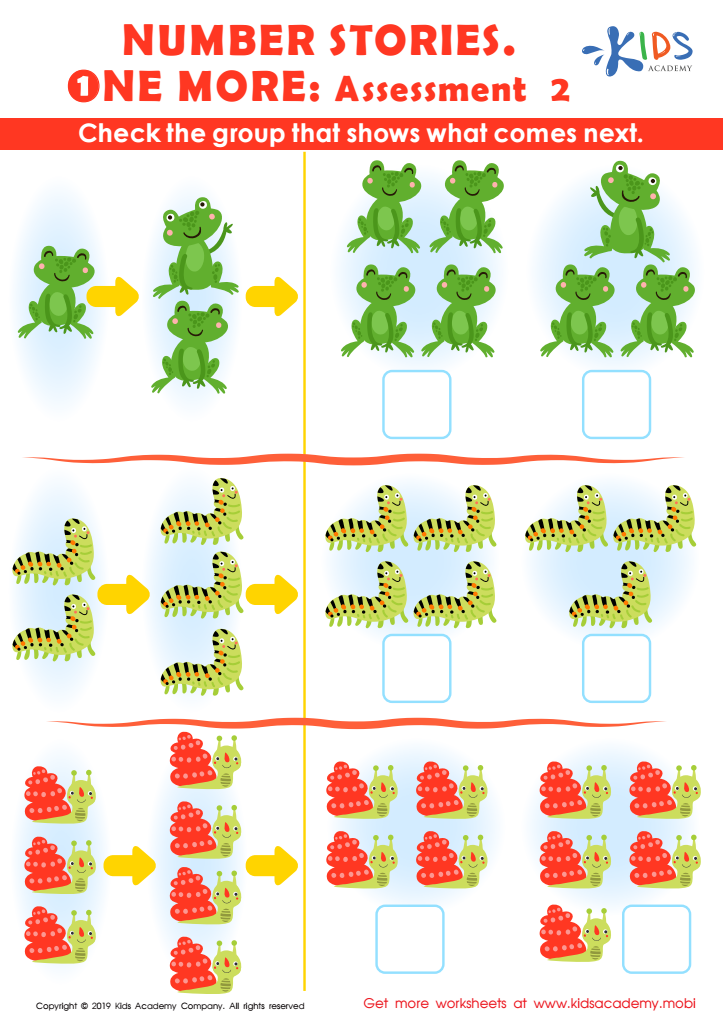

Number Stories One More – Assessment 2 Worksheet
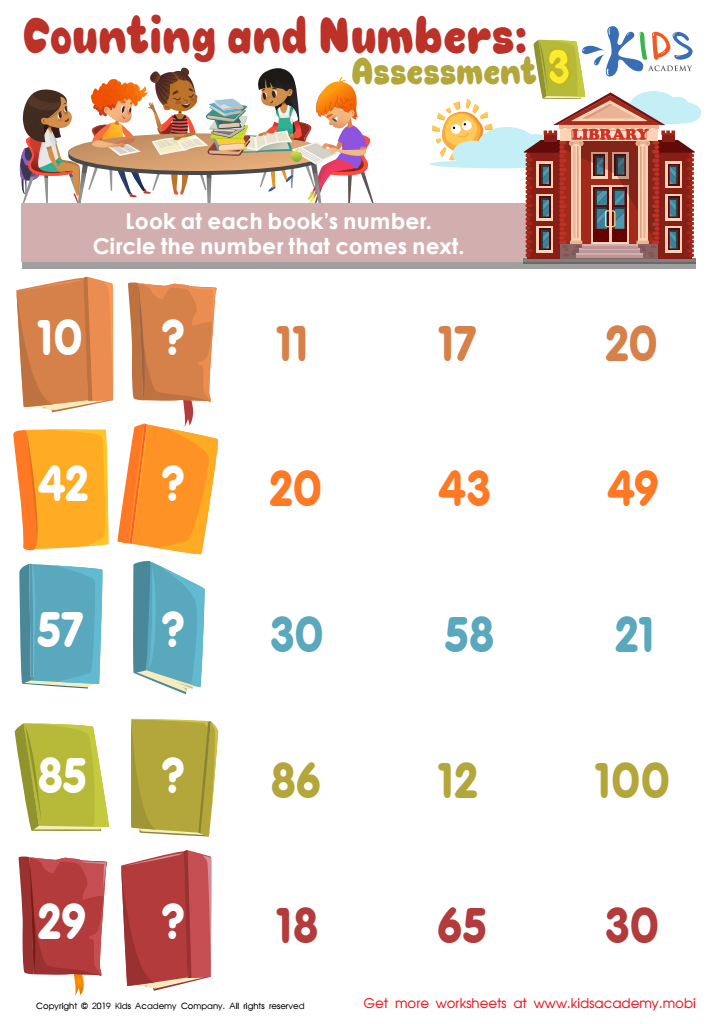

Counting and Numbers: Assessment Worksheet
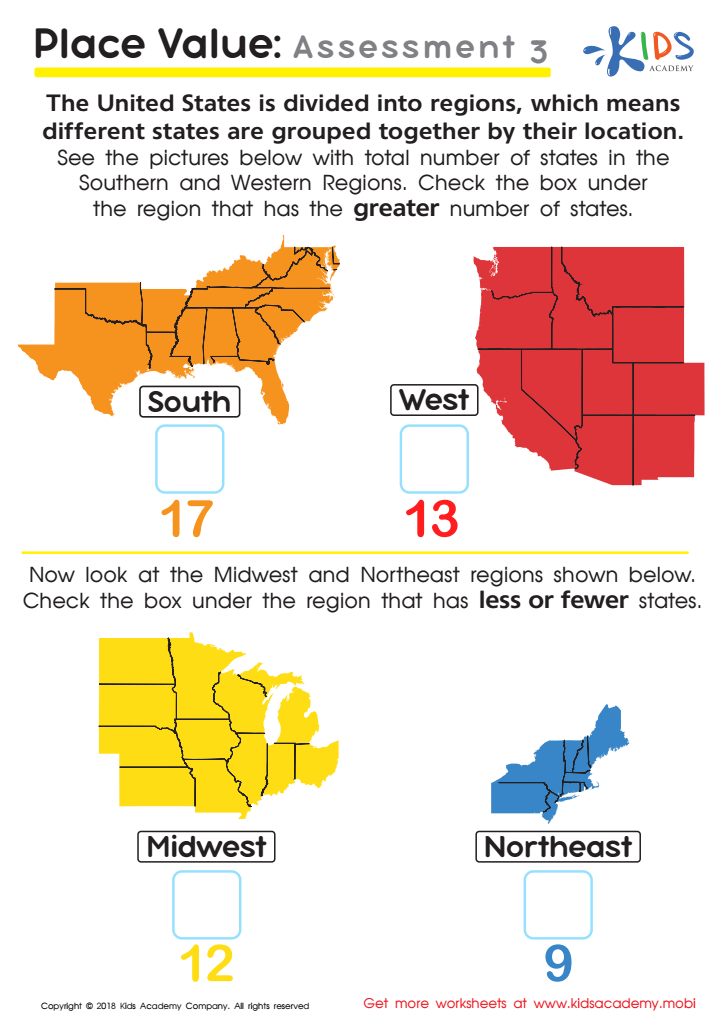

Place Value: Assessment 3 Worksheet


Word Problems: Assessment 2 Worksheet
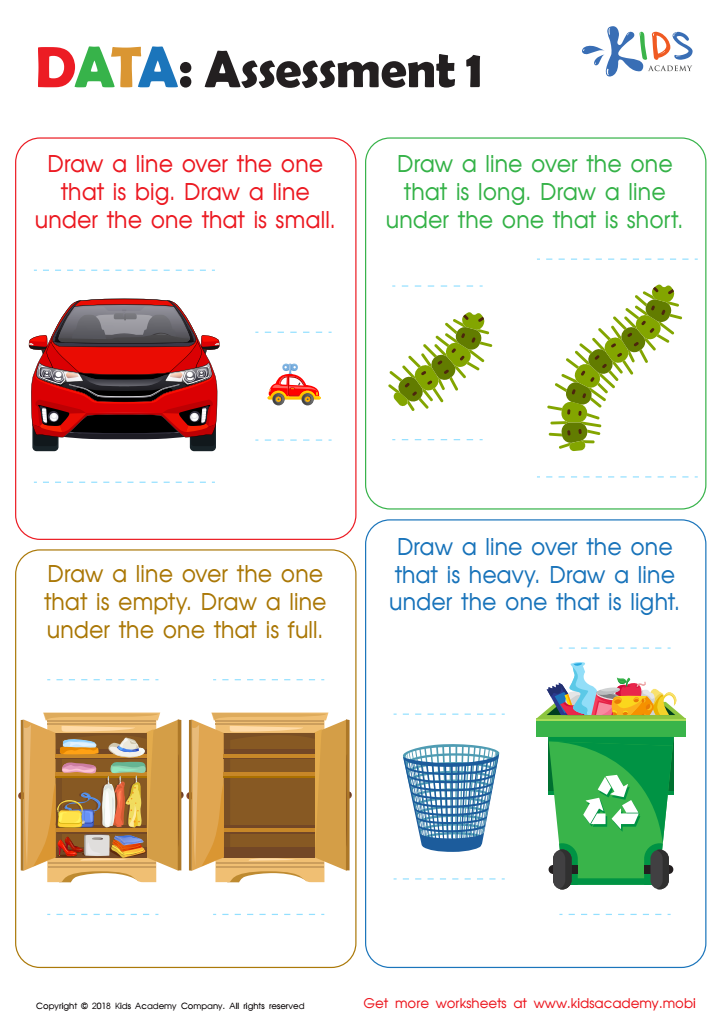

Data: Assessment 1 Worksheet
Parents and teachers should prioritize Normal Math Activities for ages 4-7 because these activities provide a solid foundation for early mathematical understanding. At this crucial developmental stage, children are naturally curious and engaged in exploring concepts of numbers, shapes, and spatial relationships. Age-appropriate math activities can enhance their problem-solving skills, critical thinking, and number sense while making learning fun and interactive.
Moreover, these activities promote cognitive development and improve fine motor skills through hands-on experiences, such as counting blocks, measuring ingredients in a recipe, or solving simple puzzles. Providing structured yet enjoyable math challenges encourages children to persevere and feel confident in their abilities, building a positive attitude toward math from an early age.
Additionally, parents and teachers can support social skills through collaborative activities, promoting teamwork and communication as children work together to solve problems. Offering clear answers and explanations alongside these activities helps caregivers identify areas where children may need additional support, fostering a proactive approach to tackling learning obstacles. Ultimately, prioritizing Normal Math Activities cultivates a love for learning and empowers children with the foundational skills necessary for future academic success.
 Assign to My Students
Assign to My Students


.jpg)













